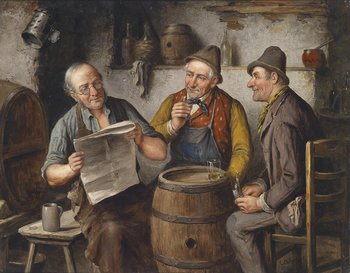Fear
Linking your argument to something that people deeply fear such as terrorism, crime, economic decline, sickness, restriction of freedom or loss of employment.Fear of Missing Out
Implying that everyone else is doing something great or getting ahead to trigger a fear of missing out.Acceptance & Belonging
Suggesting that a failure to adhere to a behavior, belief or ideology will result in social isolation and banishment such as the classic "you're either with us or against us." This plays on the human need for belonging. This can also be framed in a positive way such as an ad that suggests that buying a product or service will make your family closer.Love
Messages that inspire emotions of love for family, community, country, humans, animals or fictional characters. For example, an ad that inspires patriotism by featuring the workers who create a domestic product.Cuteness
A type of affection that generates strongly positive feelings in some consumers. For example, an insurance company that uses cute ducks to sell its products.Humor
Humor is a method of creating high levels of joy in an audience by making them laugh.Nostalgia
Nostalgia is a longing for the past and a sense of melancholy at the passing of time. This is a potent emotion that can be used to influence. For this reason, products may be marketed based on their history and role in the culture of the past. Politicians may go so far as to promise to bring the past back.Despair
Telling a sad story that creates feelings of despair. This can invoke a strong motivation to solve a related problem. For example, giving a specific example of tragedy related to a social, economic or environmental problem.Gratitude
Invoking a sense of gratitude such as an ad that portrays the sacrifices that parents make for their children.Indignation
Generating feelings of indignation by presenting a situation as being outrageously contrary to the sensibilities of the audience.Distrust
Invoking an uneasy emotion of distrust. For example, pointing out that you can't trust a group of elected politicians or appointed bureaucrats to represent your interests.Contempt
Unfortunately, contempt is a common emotion that unscrupulous individuals use to influence by stoking division and discord between people and groups.Resentment
Another common but poisonous emotion that involves anger about a wrong that occurred in the past. For example, using stories about historical oppression or wars to divide groups today.Schadenfreude
Schadenfreude is a dark sense of pleasure at the failure of others. For example, a politician who outlines how another country faced economic decline in order to invoke a dark sense of joy and superiority in an audience.Optimism
Optimism is a sense of joy that surrounds risk taking, potential and bravery. People like risk takers and being associated with brave pursuits.Admiration
Telling a story of someone who is has an admirable character and set of accomplishments. It is also common for individuals to try to convey their own admirable qualities in order to influence. For example, a salesperson who communicates something brave and interesting that they accomplished such as cycling from London to Tokyo.Wonder
Wonder is an emotion of surprise at the beauty, complexity or mystery of life. This is an extremely positive emotion that can be invoked by communicating impressive discoveries or intriguing unanswered questions.Notes
In many cases, advertising does nothing more than to seek to associate a positive emotion with a brand. This can be used in general influencing whereby creating a positive emotion generally makes you more likable such that your message may be accepted. Pathos can be visual, verbal or both.| Overview: Pathos | ||
Type | ||
Definition | Influencing by invoking emotion in an audience. | |
Also Known As | Appeal to Emotion | |
Related Concepts | ||


















